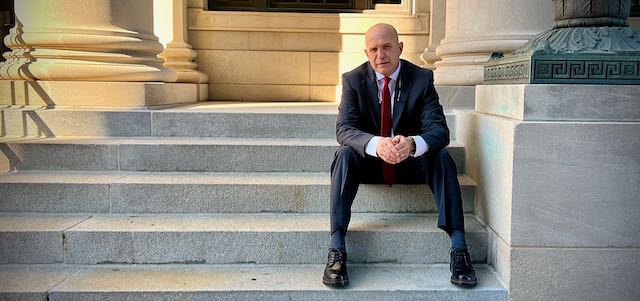Oklahoma Criminal Law

Overview of Embezzlement Charges in Oklahoma
Call 918 582 1313 for a free consultation.
Embezzlement is the misappropriation of property entrusted to someone for a purpose other than what the property was intended for. Embezzlement includes more than theft. For example if a person "borrowed" money from their employer's petty cash without authorization until payday, technicallt that would be embezzlement even if the money was paid back without anyone knowing. The state does not have to prove that a defendant intended to deprive the owner of the property permanently, only that a defendant used property or money entrusted to them for a purpose it was not intended for. Embezzlement cases are most frequently arise from employer-employee relationships, but they can arise from other situations as well.
Read What to Expect When Facing an Oklahoma Embezzlement Charge. If you want to fight your case at trial most defenses for embezzlement are going to be factual defenses, not legal ones. Factual defenses most frequently have to be asserted at a jury trial and will need a trial lawyer. (Read Analyzing Criminal Cases and Probable Cause-The Key to Understanding the Justice System for a better understanding of why factual defenses are trial defenses.) Suppression issues are unusual with embezzlement cases because the employer is typically the complaining witness and they have the right to grant law enforcement access to the evidence used against most embezzlement defendants. .
What to expect if you are accussed of embezzelment
If you are accussed of embezzlement in Oklahoma state court there is a very good chance that you can stay out of prison and avoid a felony conviction. Most embezzlement cases filed in Oklahoma state court result in plea agreements and in most cases the defendants end up with a deferred sentence with a requirement that the defendant pay restitution. This of course depends on prior criminal history, the amount of money taken and the ability to pay restitution. Defendant's charge with embezzelement, in state court, are unlikely to be sentenced to jail or prison.
The Oklahoma statute covering embezzlement can be found at Title 21 O.S. Section 1451. Embezzlement can be charged as either a felony or a misdemeanor depending on the amount of money that has allegedly been embezzled. Accusations concerning amounts less than $1,000 are charged as a misdemeanor, while accusations concerning amounts of $1,000 or more are charged as felonies. The potential punishment ranges for embezzlement are as follows.
Misdemeanor Embezzlement Punishment
Any person convicted of misdemeanor embezzlement can be punished by up to a year in the county jail and or a fine of up to $1,000.
Felony Embezzlement Punishment ($1,000 or more but less than $25,000)
Any person convicted of felony embezzlement where the value of the property is $1,000 more but less than $25,000 can be punished by up to 5 years in the county jail and or a fine of up to $5,000.
Felony Embezzlement Punishment ($25,000 or more)
Any person convicted of felony embezzlement where the value of the property is $25,000 or more can be punished by up to 10 years in prison and or a fine of up to $10,000.
Send your questions to LawyerAdams@me.com.